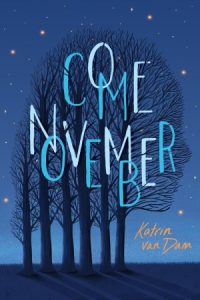The Story Behind the Book
In May of 2011, the world was supposed to end. At least, that’s what an old-school radio prophet in Oakland, California told his listeners. And many of them believed him. Believed him so fervently that they mortgaged their homes and emptied their bank accounts in order to help him get the word out. And then Judgment Day arrived… and nothing happened. No global apocalypse of earthquakes, fire and flood. And most heartbreakingly for his followers, no Rapture.
In my circle, the story generated giant waves of scorn and ridicule. One friend memorably posted a picture on Facebook of his family’s clothes lying in heaps on the ground, as though the bodies inside had dematerialized moments before. And while I found the prophecy as laughable as everyone else, I was even more struck by the pathos of the followers. I couldn’t stop thinking about those families, those people who had destroyed their lives in this world in the belief that a better world awaited them. Those parents who had discredited themselves in the eyes of their children, who in a single day had gone from authority figures to laughingstocks. What had happened to them?
I wanted someone to write that story, but if anyone did, I never saw it.
Around the same time, I happened to read an article about Easter Island. In it, the writer described a perfect little microcosm of human existence. According to him, a relatively small number of people settled the island, and then proceeded to breed exponentially, consume resources thoughtlessly, compete with each other in pointlessly lavish displays of wealth, and generally drain the ecosystem dry until, eventually, their society collapsed upon itself. I should mention that, since then, I’ve read other articles and spoken with people who know something about Easter Island who don’t entirely credit this author’s theory. But at the time, I was captivated by the metaphor. “Look!” I wanted to shout at people. “This is exactly what we’re doing now! We have to stop!” It was such an elegant parable, so obviously important, and yet nobody seemed to know about it.
So there I was, stewing over these two stories, unable to get them out of my head.
A quick digression: when I was getting married, I read through volumes of poetry, looking for the one poem that would embody, for me and my husband-to-be, the meaning of marriage. There were snippets here and there that spoke to me, but no single work that resonated in its entirety. Finally, in frustration, I sat down and wrote the poem that ended up on the back of our wedding program. When I showed it to my best friend, she cracked up. “Well, isn’t that just you in a nutshell? You do all the research, and finally end up saying, ‘Oh, screw it. I’ll just do it myself.’”
And that, very briefly put, is why I wrote Come November.

